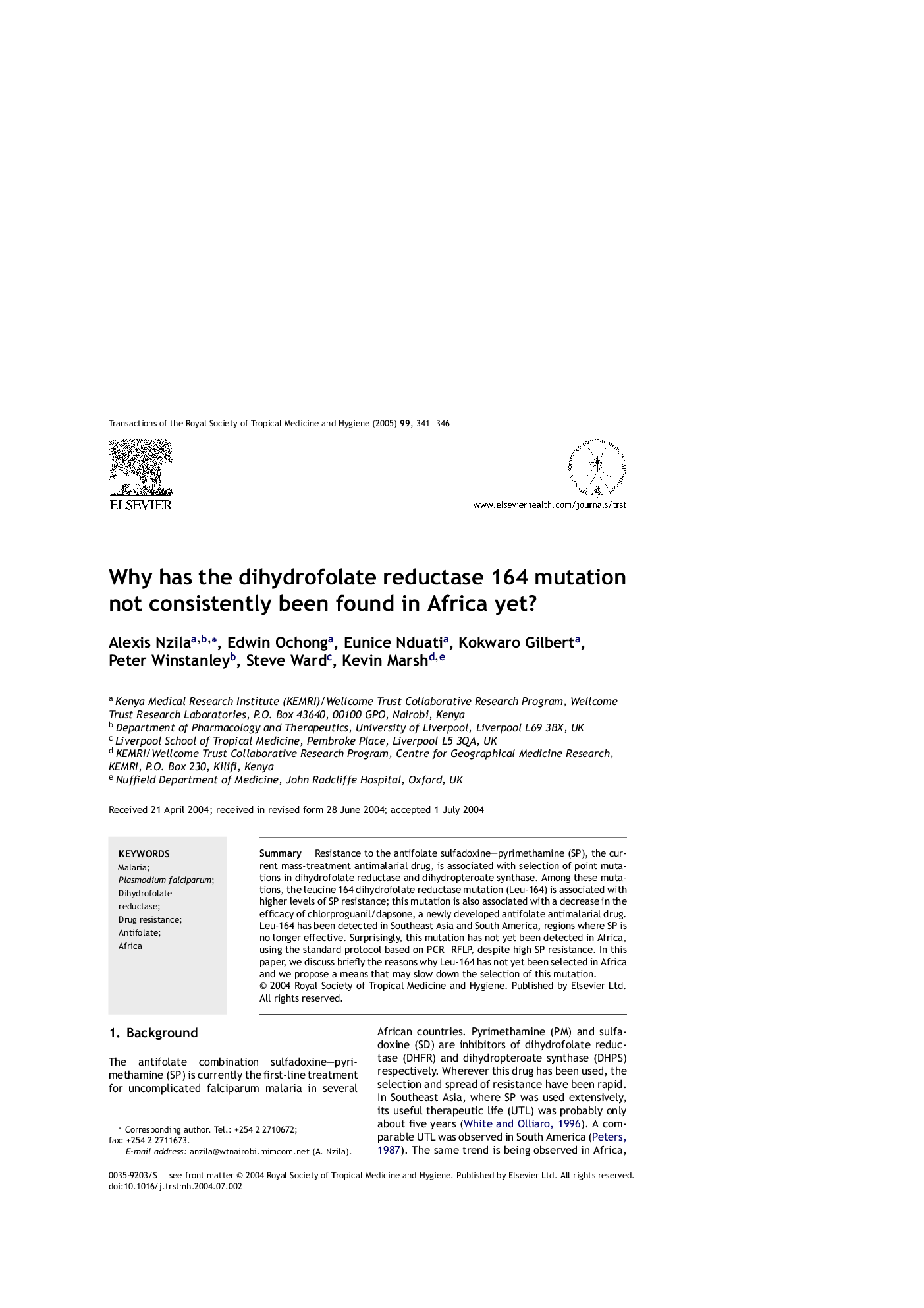| Article ID | Journal | Published Year | Pages | File Type |
|---|---|---|---|---|
| 10030586 | Transactions of the Royal Society of Tropical Medicine and Hygiene | 2005 | 6 Pages |
Abstract
Resistance to the antifolate sulfadoxine-pyrimethamine (SP), the current mass-treatment antimalarial drug, is associated with selection of point mutations in dihydrofolate reductase and dihydropteroate synthase. Among these mutations, the leucine 164 dihydrofolate reductase mutation (Leu-164) is associated with higher levels of SP resistance; this mutation is also associated with a decrease in the efficacy of chlorproguanil/dapsone, a newly developed antifolate antimalarial drug. Leu-164 has been detected in Southeast Asia and South America, regions where SP is no longer effective. Surprisingly, this mutation has not yet been detected in Africa, using the standard protocol based on PCR-RFLP, despite high SP resistance. In this paper, we discuss briefly the reasons why Leu-164 has not yet been selected in Africa and we propose a means that may slow down the selection of this mutation.
Related Topics
Life Sciences
Immunology and Microbiology
Applied Microbiology and Biotechnology
Authors
Alexis Nzila, Edwin Ochong, Eunice Nduati, Kokwaro Gilbert, Peter Winstanley, Steve Ward, Kevin Marsh,
